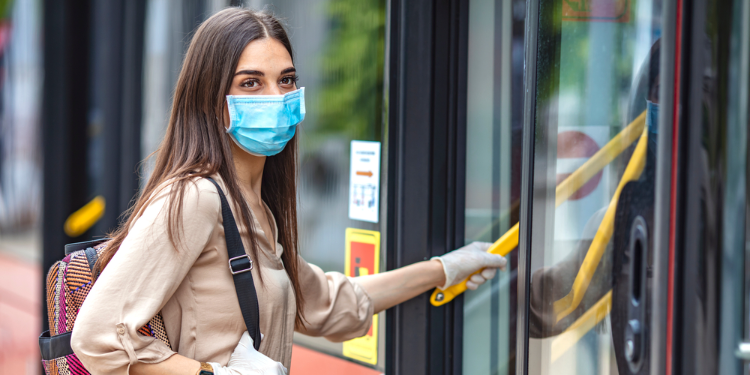The promise for a return to normalcy was delayed in many countries while others, especially in Europe, have lifted their health restrictions and reopened their borders in order to kickstart their economic recovery. However, the spreading of the new Delta variant from Asia to Europe and worldwide came as a spoiler. England, for example, had to delay its return to normalcy from June to mid-July. So from next week, there's a hope that things will slowly get back to normal despite a recent rise in the number of COVID-19 cases. Obviously, the wearing of masks, hand sanitising and social distancing, etc., remain compulsory.
A slow and uncertain return to normalcy
According to a recent study by The Economist, it is still too early to say when we will get back to normalcy as things keep on changing every day. In many countries, health measures are being reintroduced quickly to protect their populations as much as possible. Australia, for example, recently made it clear that it will not reopen its borders before mid-2022, which was scheduled for earlier this year. Besides, Sydney went back into a lockdown following a new surge in the number of COVID-19 cases.
To date, very few countries have fully reopened. According to The Economist Normalcy Index, Hong Kong and New Zealand are the only two countries that stand out as the rest of the world keeps on struggling against the pandemic. Indeed, restrictions on certain activities such as sporting events, leisure activities such as cinemas, and the reopening of bars and restaurants at full capacity, have not been lifted yet. The report thus highlights the inability of vaccination campaigns to contain the virus, but without questioning the potential of vaccines to protect populations.
Indeed, many countries have already achieved herd immunity, still haven't been able to return to normalcy. Australia, Thailand and Chile, have been forced to impose new restrictions in recent weeks. It's worth noting that more than 77% of people aged over 12 have been immunised against COVID-19 in Chile, unlike Australia, where vaccination for children and teenagers should not be a priority before. 2022. Israel is one of the few countries that achieved herd immunity with a fast and efficient vaccination campaign and almost returned to normalcy, as in the pre-pandemic era.
Many other factors, such as the slow resumption of international flights, entry restrictions, including mandatory quarantine on arrival for travellers, etc., have also affected the long-awaited return to normalcy. Currently, according to The Economist's observations, only 30% of air traffic has resumed compared to the pre-pandemic level. Even though some countries are introducing incentives to attract tourists and other travellers to revive their various industries, many governments are still advising people to avoid non-essential travel. Local health restrictions are another major obstacle to normalcy. For example, certificate of vaccination against COVID-19 is required for access to many places while the anti-vaccine community keeps growing around the world. Besides, many places, such as gyms, restaurants, stadiums, and other activities, are only allowed to operate at a reduced 20% to 50% capacity.
In addition, the rise of remote working is playing a key role in the delayed return to normalcy. In many developed countries, such as the United States and Canada, most employees were given the remote work option since the early days of the pandemic. Europe and many countries in Asia followed the trend, but in African countries where the internet is often slow or nonexistent, remote working has never been an option. It's worth noting that more and more employers are currently offering the remote work option when hiring new employees. This is a significant obstacle to international mobility, but also to the return to normalcy as public transport, traffic, and everyday life in general, are slowed down.
A change of attitude is crucial
n some countries, particularly in Asia, national festivities earlier this year were a major cause of the new COVID-19 surges. In others, the lifting of restrictions and the reopening of borders have played a significant role, especially since research shows the development of new COVID-19 variants. However, the Delta variant seems to be the primary concern at the moment. Authorities are finding it hard to enforce the existing laws when people do not cooperate. For example, according to The Economist, only 5% of the global population has actually complied with lockdown and movement restrictions since the start of the pandemic. At present, 14% of the global population is still locked down following new waves. Most of the time, this is due to the lack of vigilance.
Currently, researchers are to prove the efficiency of COVID-19 vaccination. However, according to research published by Pasteur Institute on July 8, 2021, you have to get both jabs to be fully immunised against the Delta variant, considered to be the most dangerous for the moment. In the same report, the Pasteur Institute confirms a 92% efficiency of the AstraZeneca vaccine against severe forms of the disease and a 96% efficiency of the Pfizer vaccine, provided the person has got both jabs. Hence the importance of speeding up vaccination campaigns around the globe.
But in the meantime, until a change in mentality and more awareness regarding the COVID-19 vaccine, the wearing of masks, regular hand sanitising, and social distancing remain essential if we are looking to a return to normalcy in the future coming months.
















